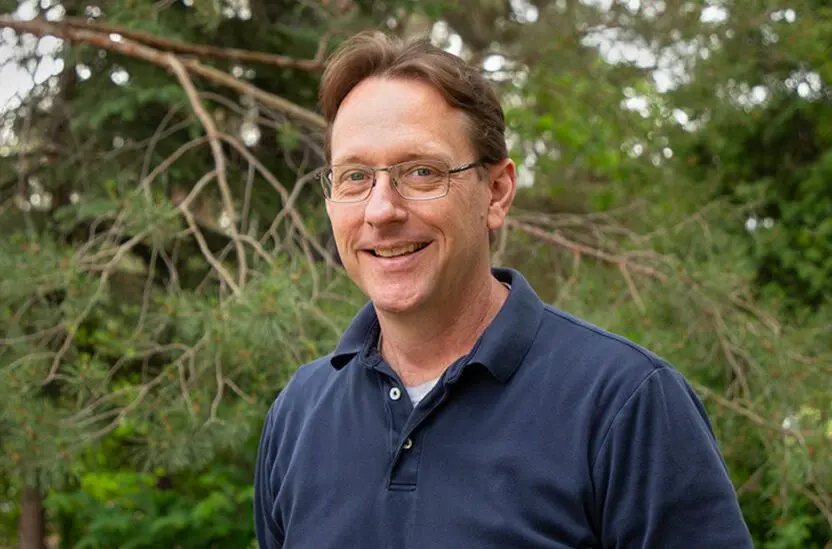PULLMAN, WA – Whenever weed scientist Ian Burke tells someone about his profession, he knows to expect a variation of the nearly inevitable response: “So I’ve got this weed in my garden…”
“It’s amazing how intrinsic the concept of a weed is,” said Burke, professor and R.J. Cook Endowed Chair of Wheat Research at Washington State University whose work focuses on weed biology and ecology. “Weed science is fundamental to the human condition. When we first cultivated crops thousands of years ago, the second thing we did was make sure that just the crops grew, not other plants.”
That deep fascination with weeds led Burke to dedicate his professional life to helping fight unwanted plants that impact agriculture. By any measure he’s been successful, and this spring the Western Society of Weed Science presented him with an award in recognition of his work.
The society’s awards for Outstanding Weed Scientist are cumulative, given to experts who have a comprehensive and distinguished body of work that has contributed to the field in a meaningful way. Burke won the award in the public sector division at the society’s annual meeting earlier this year.
He has also taken on a national role in the Weed Science Society of America. Currently the president-elect of the society, he will become president after the annual meeting in 2026.
“I have benefited tremendously from many colleagues in the society, and this is a great way to give back,” Burke said. “I get to work with fantastic, dedicated people in both the public and private industry who want to support agriculture and feed people. I hope my time in this leadership role will help more people contribute to our field.”
As president-elect, he will formalize goals for his one-year presidential term. Those goals include boosting the impact of the society’s committees, which he called the heart of the organization, and determining how to deal with the changing landscape of federal funding for weed science.
“I want to galvanize action and a response for how to advocate for what we do,” Burke said. “I’m a strong supporter of growers and understanding their reality and constraints. I want to help find solutions to the real-world problems that impact how much food they grow.”
Burke’s work at WSU includes teaching, lab research, field work, and grower outreach.
Currently he’s studying prickly lettuce, which he said is ubiquitous around the world, and cheatgrass. The latter has a variety of impacts.
“It’s astonishing how this little grass can cause so much damage,” Burke said. “It hurts wheat yield, it affects wildfire cycles, and it is probably the toughest weed we have in the western U.S. We’re really focusing on new approaches to help manage it.”
Even experts must continue to learn and adapt, and cheatgrass is keeping a national figure like Burke on his toes.
“We are always looking at new technologies and new thought processes for battling weeds,” he said. “I think we’re on the cusp of having a big impact, especially with cheatgrass, and I’m excited about the work we’re doing.”
